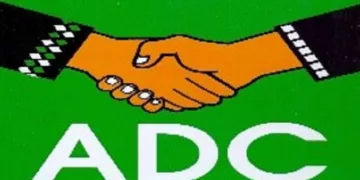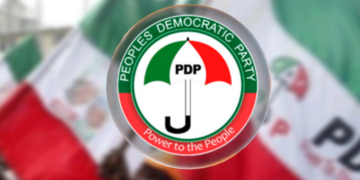Some civil society organisations (CSOs) and experts in good governance have expressed worry over the National Assembly’s (NASS) endless investigations of ministries, departments and agencies (MDAs), declaring them a waste of the nation’s resources.
They argued that since most of the probes border on financial and administrative malfeasance, their continued delay, abandonment and endlessness portend danger for good governance.
In an interview with LEADERSHIP, the executive director of CREAP Africa Initiative, Sylvanus Udoenoh, said the National Assembly had consistently launched numerous probes into pressing issues of national concern, ranging from corruption in public institutions, misappropriation of valuable resources, to abuse of office and systemic failures in service delivery.
He, however, expressed concern that what was playing out had been “endless probes, with no results: only loud noise and sometimes. We feel they threaten these probes to avoid being labelled rubber-stamped.
“Until now, many probes are either pending or awaiting the release of reports. We don’t even want to talk about their recommendations or the very implementation of them.”
Udoenoh identified some of these pending investigations in the 10th as the oil sector (economic sabotage) by the Senate to identify economic saboteurs who have hindered the sector over the past decade – the $5.79 billion Mambila Hydroelectric Power Project, the N30 trillion Ways and Means probe, the $18.5 billion Abuja Centenary City Project and the Ajaokuta Steel Company probe.
He noted that many of these investigations rarely yield concrete outcomes or lead to meaningful reforms.
“Parliamentary probes are important mechanisms for ensuring transparency, checking executive excesses and protecting public interest. However, the persistent failure to conclude investigations, release findings or implement recommendations severely undermines public confidence in democratic institutions.
Udoenoh also advocated enhanced civil society participation in oversight and monitoring of the implementation of legislative findings and legal reforms for oversight accountability to improve the deterrent effect and ensure responsiveness.
Also, the executive director of the Grassroots Centre for Rights and Civic Orientation, Armsfree Ajanaku, said it has become the norm for the National Assembly to expend working hours to engage in endless probes only to move on without the results or outcomes of the probes being made public.
He said this speaks to a culture of lack of accountability which has pervaded Nigeria’s democratic process and added no value to good governance.
“This anomaly of endless probes, which end up adding no value to governance, is part of the reason driving the public distrust of the legislative arm, especially at the federal level,” he said.
This has also led citizens to develop a deep-seated distrust for the work of NASS and its oversight functions.
“Therefore, endless probes, which end up adding zero value in terms of accountability in governance and justice for the Nigerian people, amount to a waste of scarce resources.
“For this to change, the National Assembly must ensure that the outcomes of its probes and investigations are speedily implemented. Citizens’ confidence would be restored if the results and recommendations of such inquests are taken seriously and implemented,” Ajanaku added.
On his part, Dr Donald Ende, a lecturer in the Department of Sociology at Benue State University, Makurdi, lamented the National Assembly’s endless probes without commensurate results or implementation recommendations, thereby hampering good governance.
“It is becoming glaring that the National Assembly embarks on probes only to induce heads of MDAs to grease their palms. If not, have you ever seen anyone punished or compelled to refund allegedly stolen monies after the probes?” he queried.
The National Assembly, in the exercise of its power of oversight enshrined in the constitution and the rules of both chambers – the Senate and the House of Representatives – conducts investigations or probes into the activities of MDAs, especially when infringements on law(s) are perceived.
Over the years, the federal legislature has embarked on probes or investigations in carrying out this sacred duty, acting on motions raised on the floor, queries by the Office of the Auditor-General of the Federation (OAGF), and petitions.
However, most of these probes are either abandoned halfway or overtaken by events, and the recommendations they generate are usually not implemented.
Present and past sessions of the National Assembly have undertaken major probes involving huge sums of money misappropriated or embezzled or other infractions by the MDAs.
In the 9th Assembly, for instance, particularly in the House of Representatives, one of the probes that generated much public interest but went the way of the others was the investigation into the financial malfeasance in the Niger Delta Development Commission (NDDC) over a missing N40 billion and illegal expenditure of N81.5 billion.
Similarly, the 10th Assembly has from its inauguration to date embarked on series of probes such as investigations into the $5.79bn Mambila Hydroelectric Power Project, multi-billion dollars spent on turnaround maintenance of refineries in the last 10 years, alleged uneven disbursement of intervention loans to the tune of N483 billion by the Development Bank of Nigeria (DBN); oil theft; N4 trillion revenue loss from tax incentive, waiver ‘abuses’; alleged non-remittance of N2 trillion, other taxes by NNPCL and N30 trillion Ways and Means probe and $18.5 billion Abuja Centenary City Project by an ad-hoc committee, chaired by Deputy Senate President Barau Jibrin.
Also, at the beginning of the 10th Assembly, the House investigated job racketeering in MDAs, where cans of worms were opened.
Again, the House embarked on an investigation of the importation of adulterated petroleum products, the non-availability of crude oil for domestic refineries, and other critical energy security issues, but midway, it dissolved the ad-hoc Joint Downstream and Midstream Committee saddled with the responsibility and reconstituted another committee.
LEADERSHIP Sunday checks reveal that most of these probes, which are being conducted by standing, ad-hoc or special committees, are still pending.
Also, resources are put into these probes for publications in major media outlets, printing flexes(banners), hiring consultants, refreshments and other miscellaneous expenses.






